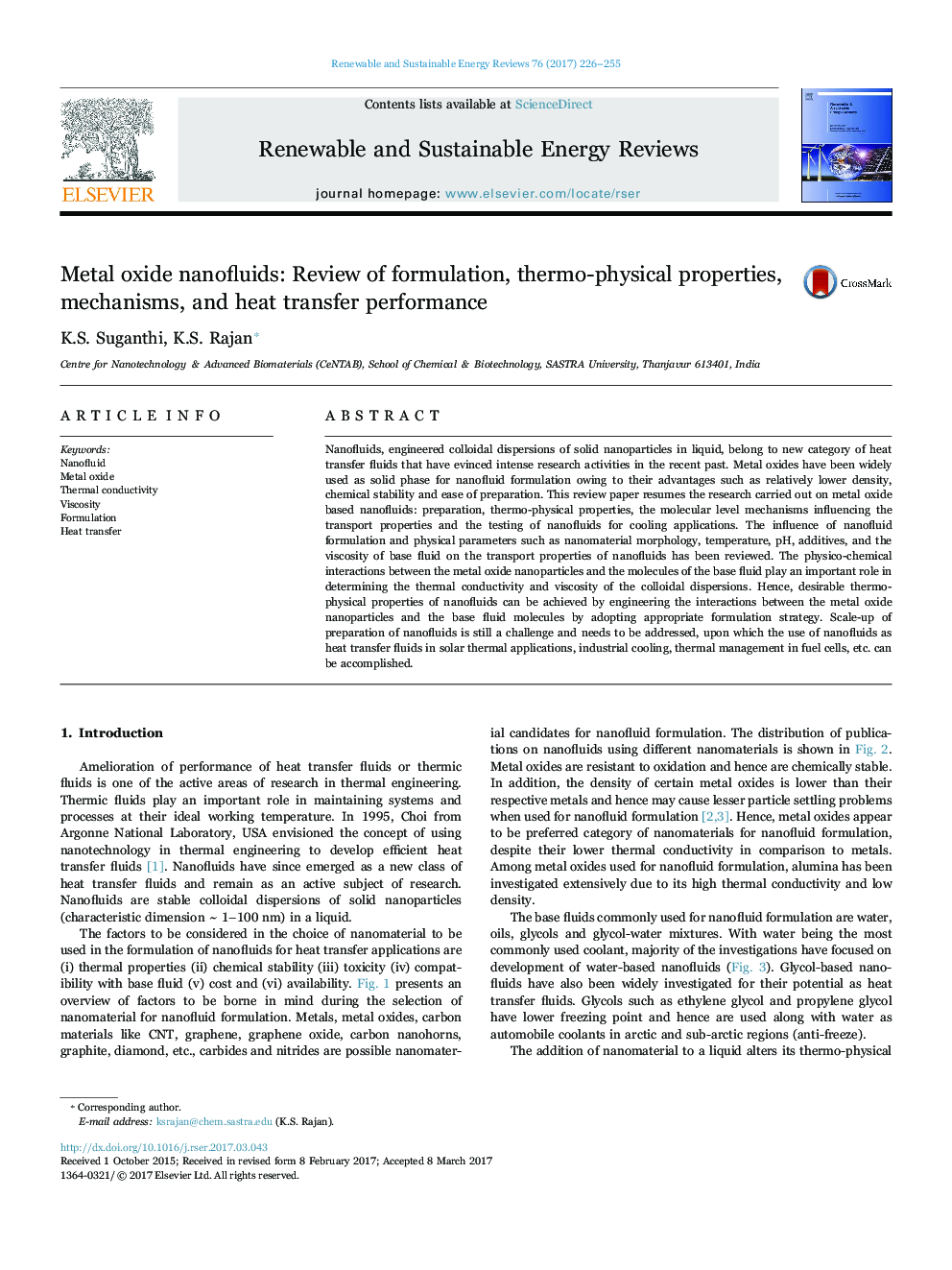| Article ID | Journal | Published Year | Pages | File Type |
|---|---|---|---|---|
| 5482157 | Renewable and Sustainable Energy Reviews | 2017 | 30 Pages |
Abstract
Nanofluids, engineered colloidal dispersions of solid nanoparticles in liquid, belong to new category of heat transfer fluids that have evinced intense research activities in the recent past. Metal oxides have been widely used as solid phase for nanofluid formulation owing to their advantages such as relatively lower density, chemical stability and ease of preparation. This review paper resumes the research carried out on metal oxide based nanofluids: preparation, thermo-physical properties, the molecular level mechanisms influencing the transport properties and the testing of nanofluids for cooling applications. The influence of nanofluid formulation and physical parameters such as nanomaterial morphology, temperature, pH, additives, and the viscosity of base fluid on the transport properties of nanofluids has been reviewed. The physico-chemical interactions between the metal oxide nanoparticles and the molecules of the base fluid play an important role in determining the thermal conductivity and viscosity of the colloidal dispersions. Hence, desirable thermo-physical properties of nanofluids can be achieved by engineering the interactions between the metal oxide nanoparticles and the base fluid molecules by adopting appropriate formulation strategy. Scale-up of preparation of nanofluids is still a challenge and needs to be addressed, upon which the use of nanofluids as heat transfer fluids in solar thermal applications, industrial cooling, thermal management in fuel cells, etc. can be accomplished.
Related Topics
Physical Sciences and Engineering
Energy
Renewable Energy, Sustainability and the Environment
Authors
K.S. Suganthi, K.S. Rajan,
